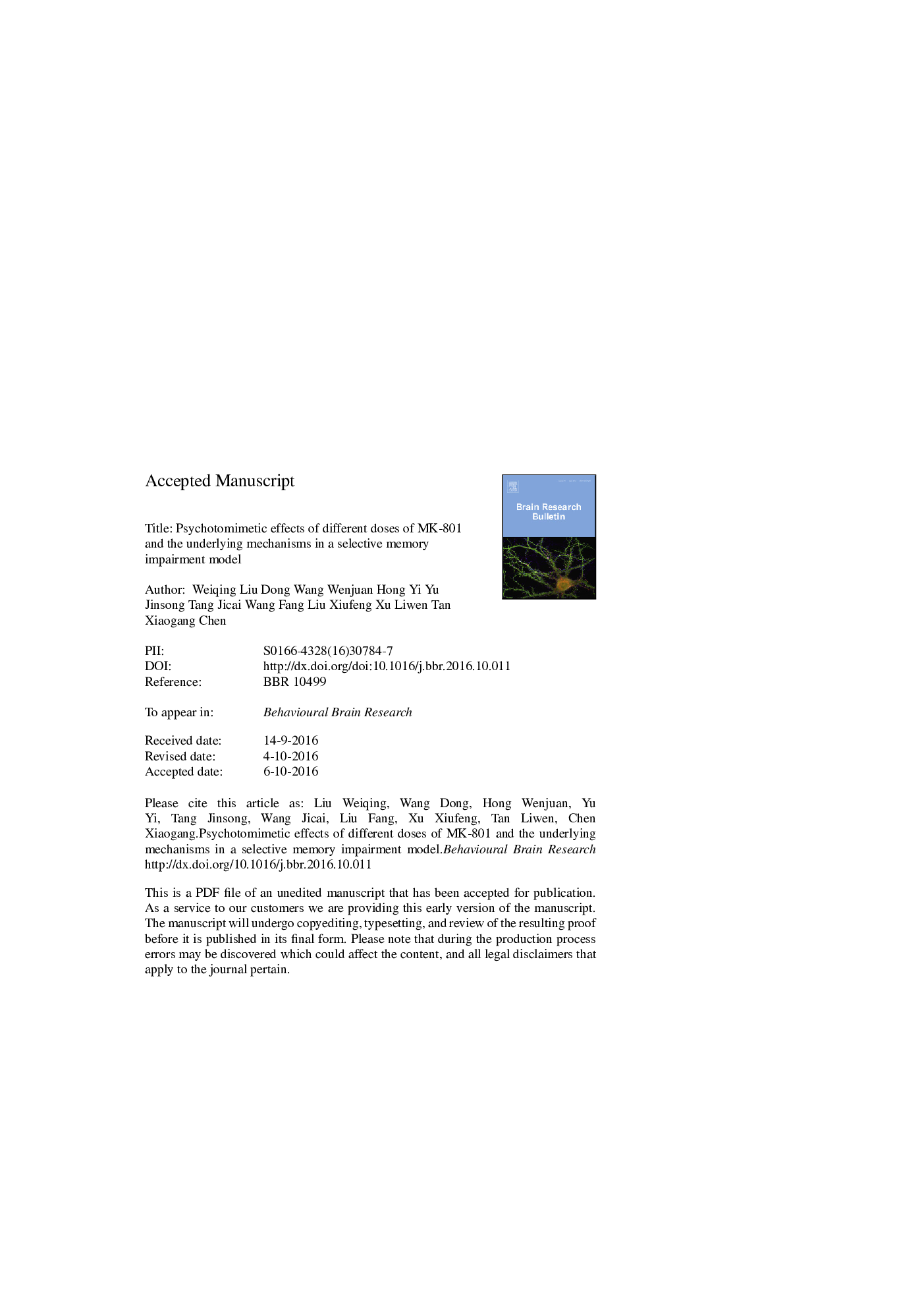| Article ID | Journal | Published Year | Pages | File Type |
|---|---|---|---|---|
| 5735698 | Behavioural Brain Research | 2017 | 32 Pages |
Abstract
Although N-methyl-d-aspartate receptor antagonists-induced hypoglutamate rodent models are the most well-established models for preclinical studies of schizophrenia-related deficits, they also evoke a wide spectrum of psychotomimetic side effects. It is significant to increase the specificity of hypoglutamate rodent models. In this study, the recognition memory was evaluated in rats by object recognition test (ORT), sensorimotor gating was evaluated by prepulse inhibition of the startle reflex (PPI), and locomotor activity was measured using open field test. High-performance liquid chromatography was used to measure neurotransmitters content in the medial prefrontal cortex (mPFC) and thalamus (THA). Total Akt and phospho-Akt protein was measured by Western blots. Results showed that 0.3Â mg/kg of MK-801 was most effective in inducing locomotion. 0.3Â mg/kg of MK-801 was most effective in decreasing PPI. 0.03Â mg/kg of MK-801 was most effective in decreasing object memory while not affecting exploration manners in the training session. 0.03Â mg/kg of MK-801 significantly increased HVA and Glu content in the mPFC. 0.1Â mg/kg of MK-801 significantly decreased GABA content in the THA. 0.03Â mg/kg of MK-801 significantly decreased Akt phosphorylation in the mPFC, which was related to the ORT index. In conclusion, a dose of 0.03Â mg/kg MK-801 can establish a “pure” memory impairment model without contaminations of sensorimotor gating and locomotor activity. MK-801-induced cognitive deficits is associated with increased DA metabolites and glutamate content in the mPFC and decreased GABA content in the THA as well as decrease in Akt phosphorylation in the mPFC.
Related Topics
Life Sciences
Neuroscience
Behavioral Neuroscience
Authors
Weiqing Liu, Dong Wang, Wenjuan Hong, Yi Yu, Jinsong Tang, Jicai Wang, Fang Liu, Xiufeng Xu, Liwen Tan, Xiaogang Chen,
